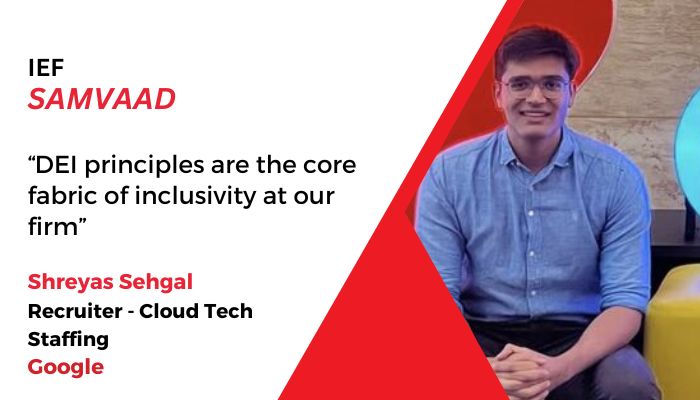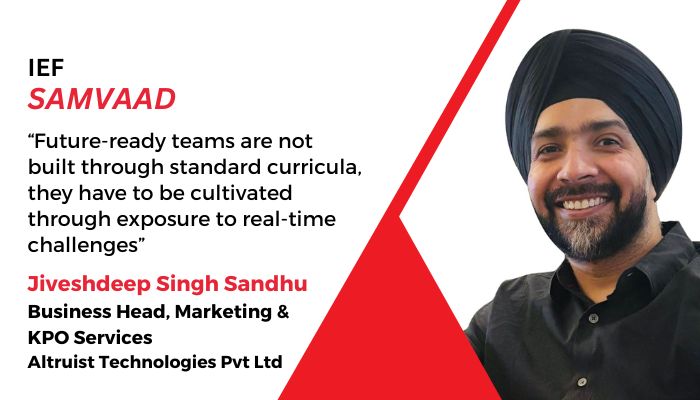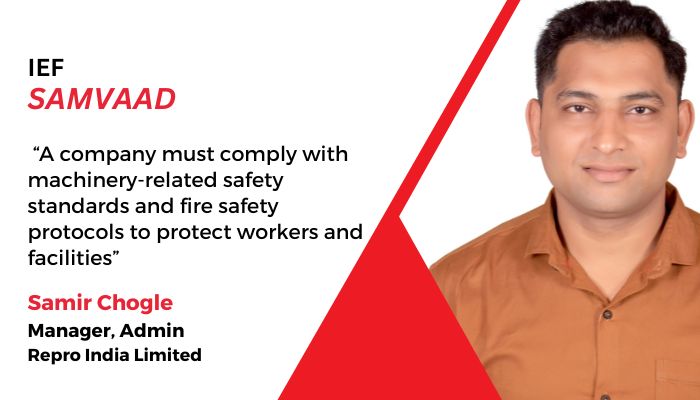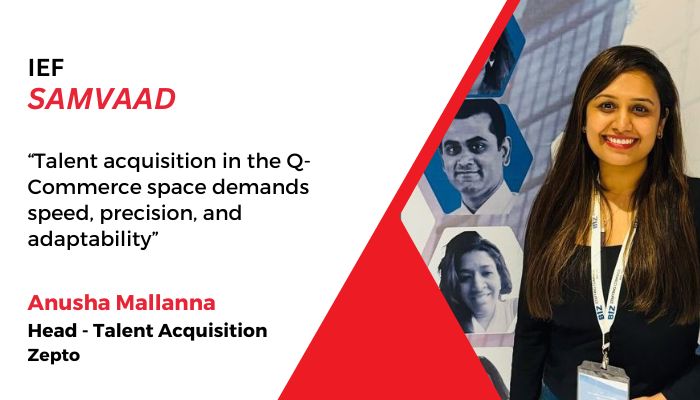Yogi Sriram, Senior Vice President – Corporate Human Resources & Member of the Executive Committee, Larsen & Toubro Limited, opines that the most challenging task for HR will be to make the job interesting for employees
Q. Tell us about yourself, your career and key achievements.
I am the Senior Vice President – Corporate Human Resources & Member of the Executive Committee, Larsen & Toubro Limited, a USD 20 billion technology, engineering, construction, manufacturing and financial services conglomerate, with global operations. I also lead a world class Institute of Project Management.
Experience:
I have 42 years of experience in HR leadership roles across diverse industries ranging from manufacturing, hospitality, finance, FMCG, engineering, petroleum and now, construction.
Few of the logos that I have closely worked with are Asea Brown Boveri Limited, British Petroleum, Taj Group (Tata) and the Shriram Group (earlier DCM).
My interest is in the area of talent spotting, succession planning, career sculpting, organization development, talent management and change management.
Currently, I am probably the longest serving HR leader in the country.
Some recognitions & contributions: –
- Admitted as the first HR professional in India as Fellow, All India Management Association (AIMA)
- Awarded the YP Singhania Award for HR Excellence – 2019 under the auspices
- of JK Cement Limited & NHRDN Delhi & NCR Chapter
- I am the immediate past President of the Mumbai Chapter of National HRD Network (NHRDN) which has been awarded the best Chapter award in 2012
- Speaker at several international seminars such as SAP Success Connect – London (2019), IEDC Bled School of Management – Slovenia (2018), Talent Connect LinkedIn International Conference – Anaheim, USA (2015) etc.
As a hobby, I like to work on HO/OO Scale Model Trains. I enjoy conversion of analogue trains into digital trains. I am also a wildlife photography enthusiast particularly interested in clicking shy mammals, accipitriformes, owls and other birds in flight. At present I am experimenting with a full frame reel camera.
Q. How do you manage the intellectual pursuits and your unique hobbies with the high-pressure job that you always had?
I use my time reasonably well. My work day starts at 7.45 am and I work even on weekends. But it’s always a blend of work and my hobbies. I don’t let monotony set in by doing only one thing all the time. While working on trains, I can sit at stretch for 24 hours to 36 hours, taking only short breaks in between. I have always had a hobby right from my college days in SRCC, Delhi University. It was chess then. I’m also into studio photography and don’t shy away from learning about a subject from YouTube repeatedly till I learn what I wish to (example how to use a light meter with a manual camera).
Q. What does it take for an HR professional to get a seat on the table?
The ability to bring disparate pieces of information together and make inferences from data. Drawing intelligent inferences and making the right judgements gets us a seat on the table. In this age of ambiguity and information overload, making superior judgements is what counts. Also, HR professional should also have influencing skills, persistence, resilience along with a wide breadth of domain knowledge in areas such as in labor laws, organization behavior, social psychology, economics etc.
Q. How has the HR profession changed over the years?
There has been a paradigm shift in HR over the years. Earlier, there was an emphasis on industrial relations, now HR is more concerned with developing leaders. The emphasis on Legal and employee relations has reduced and there is more dependence on external expertise in these areas, especially amongst the new crop of HR professionals. Some engineers are entering the HR profession and they are bringing with them quantitative techniques and analytical skills. They are more comfortable in using mathematics and statistics. This has given a different dimension to the function.
Q. What’s your view on the mega trends in HR?
- HR will be using technology such as AI in a big way for people’s decisions. However, it is important to understand why/when and how to use technology. We have to learn to create content delivery so that employees can enjoy learning. Gamification is an example. In today’s corporate world, it is imperative to know, understand and leverage new age technology like big data, data analytics, gamification and add value to the quality and content of one’s work. Other big trends are:
- Designing new types of organization structures
- Contextually relevant policies for millennials
- Dovetailing compensation strategy with the economic environment of business
- Creating micro cultures within an organization
- Developing leaders with fungible skill sets
You might also be interested to read: ‘External Orientation Is Important To Stay Ahead Of The Curve’ – Krishnamurthy Shankar, Group Head – HR Development, Infosys
Q. What’s your opinion on the future of work? Do you foresee the large Indian conglomerates getting swamped by gig workers or they will remain immune to the gig economy?
AI, algorithms and data will be used more extensively in determining job families. The future of work will be in replacing routine job evaluation models with entrepreneurship and innovation being major factors in scoring jobs roles. Organization designs will be more flexible and flatter. This will give professionals an opportunity to demonstrate intrapreneurship. Micro cultures will include the start-up spirit. The most challenging task for HR will be to make the job roles interesting for employees. Jobs roles will be personalized, and bespoke in the future taking into account the interest areas of an employee.
Though the gig economy will grow, these are early days to predict whether it will replace longer tenure employment. Given the unique challenges it will pose, the practice may be seen in a few roles today such as handymen, pizza delivery boys and in the tech industry. An economy where the practice will be seen in many more sectors may evolve gradually.
Q. How does one ensure quality of hires? Today, we see people everywhere, but employability remains elusive, why?
- The base is important in terms of formal education. However, if the job requires technical skills, I will look for hands on experience in that specific technical skills.
- It is very important to write a detailed JD for the role, do thorough reference checks before the interview to ensure that the candidate has the capability to excel in the job role
- There should be a multi-layered Interview process consisting of 3-4 panelists for each round. At the end of the interview process the interviewers can compare notes amongst themselves and build on each other’s observations
- Structured interview processes should be followed to have consistency
- Social media profiles can be looked out to check attitude
- Candidates can be assessed by using a situation based approach. Their attitudes and behaviors can be assessed at least approximately
Q. Why do we see talent getting recognized and merit being the predominant factor helping talented people move up in the US, what can be done to make that happen in India?
In the US there is a concept of an activist shareholder. They keep Company Boards on their toes. So, to succeed in such an environment CEOs have to be exceptional, goal oriented, and very competent.
Also, in the US, people are much more open to choosing alternate careers as compared to India. There is no social stigma in choosing careers that may look unusual and changing track unlike in India. The reluctance to make track changes in India by learning entirely new skills even at mid career stages, limits the possibilities for career growth.
Q. What traits do you try to see in budding HR professionals when you hire them?
HR professionals should have high emotional intelligence. People who are calm, good listeners and can work around solutions in complex situations are most suitable in this profession. HR is not meant for feeble-hearted and excitable people. A positive attitude and a never-say-die spirit is a vital trait every HR professional must have.
Some of the traits I look out for are: –
- Analytical Skills
- Accuracy
- Ability to draw Inferences
- Networking Skills
- Impactful Communication
- Dependability – Quality of Work
- Knowledge about a broad range of Subjects
- Hard working
- Detail oriented
- High energy levels
Q. What’s your success mantra?
I have always listened to my inner self and done what I wanted to do.
My success mantra is that I have persevered in whatever I do. I am structured and systematic. I am proud to be very dogged and resilient. I also have a childlike curiosity. And I am passionate about things which get me genuinely interested. Lastly, I learn and unlearn fast.
Q. What’s your message to HR professionals? How do they make themselves relevant for the rest of their career?
Develop humility. Develop a strong sense of conviction. Practice before preaching.
Be strong in concepts. Curating Content. Practice what you read. Domain is god. Remain focused about what you want to do. Learn and work in one domain every five years. For example, if one works in IR, one needs to be thorough in case laws and interpretation of the law. Don’t try to prove to a business manager that you can run the business better than him/her. Sometimes HR folks get carried away by their own perfunctory exposure to business. This may be superficial, so please beware!
About Yogi Sriram
Senior Vice President – Corporate Human Resources & Member of the Executive Committee, Larsen & Toubro LimitedYogi Sriram is the Senior Vice President – Corporate Human Resources and member of the Executive Committee, Larsen & Toubro Limited, a USD 20 billion technology, engineering, construction, manufacturing and financial services conglomerate, with global operations. He also leads a world class Institute of Project Management. With 41 years of experience, Yogi is currently the longest serving HR leader.
Yogi did his graduation in Economics from Shriram College of Commerce; L.L.B. from University of Delhi; MBA in Organization Behaviour from FMS, University of Delhi and Masters in Personnel Management & IR, Tata Institute of Social Sciences. He has many national and international certifications, accomplishments; is a member of committees and a noteworthy speaker at several forums.
He likes to collect HO/OO Scale Model Trains and enjoys conversion of analogue trains into digital trains. He is also a wildlife photography enthusiast particularly interested in clicking shy mammals, accipitriformes, owls and other birds in flight. Much of his work is available on Facebook: https://www.facebook.com/yogi.sriram






